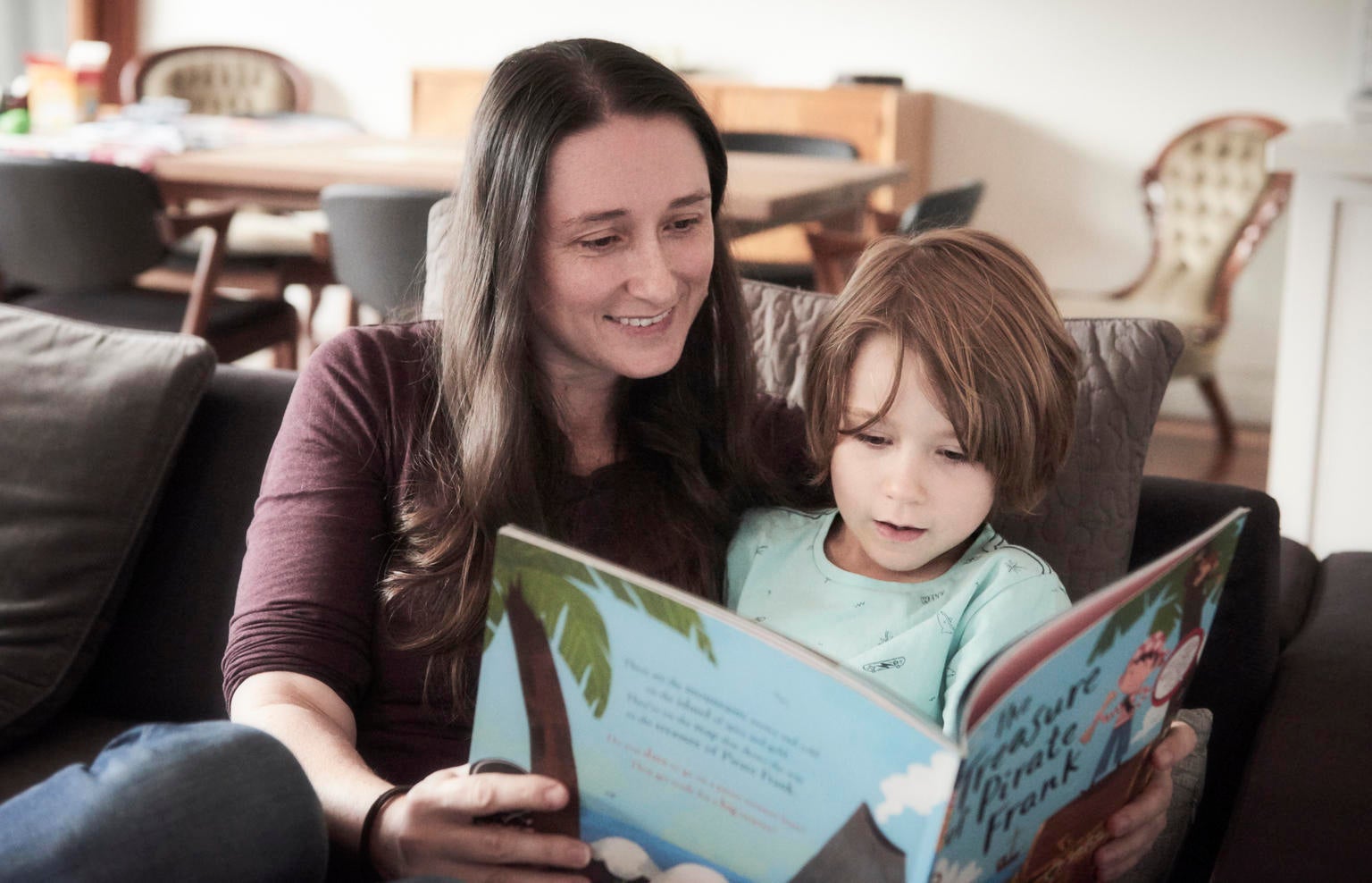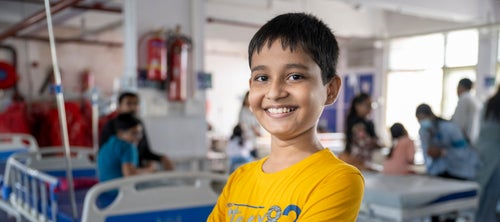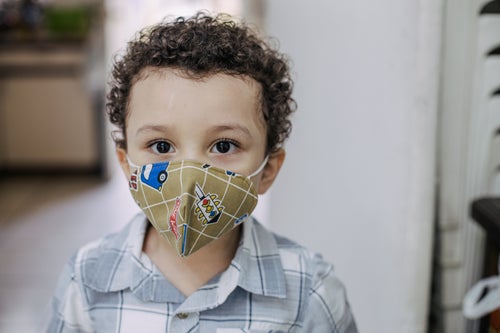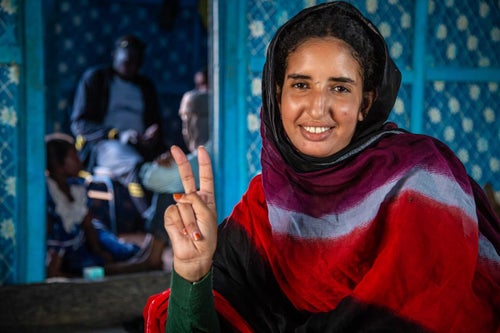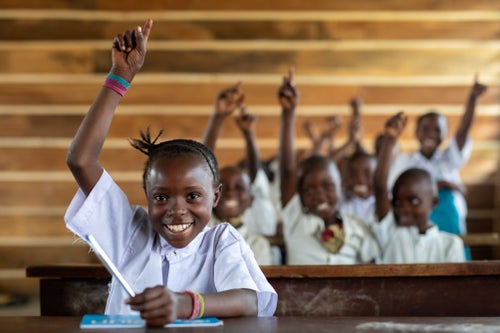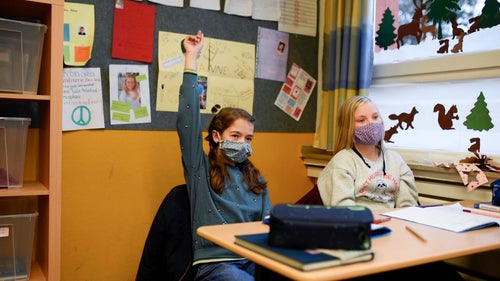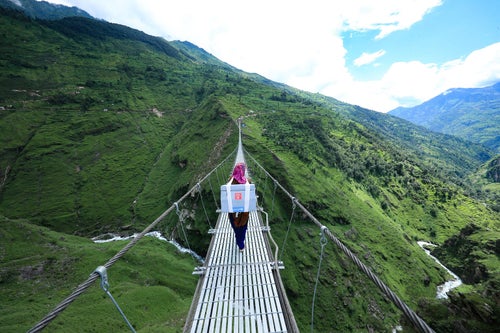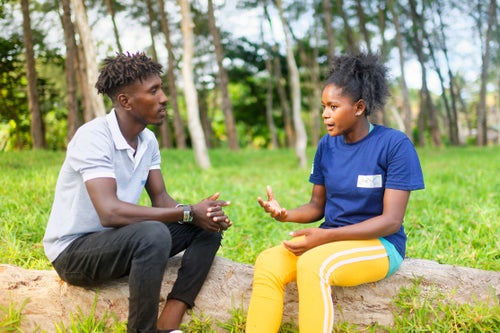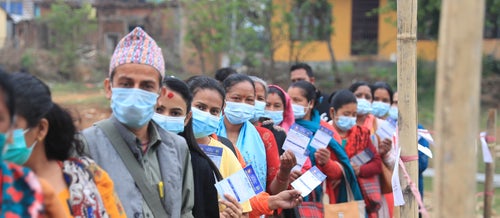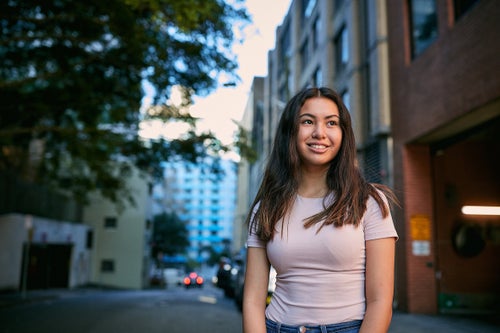These are extraordinary times. The lives of children all over the world are being turned upside down as health systems buckle, borders close, and schools and businesses shutter under the pressure of the global health crisis. All children are affected by the pandemic, but the most vulnerable children are disproportionately affected. We must act now to support each other. COVID-19 binds us together. Solidarity binds us together. Photographers in countries around the world are at home with their families in lockdown in an effort to stop the spread of the coronavirus. These are some of their stories as they turn their lenses on themselves and their families.
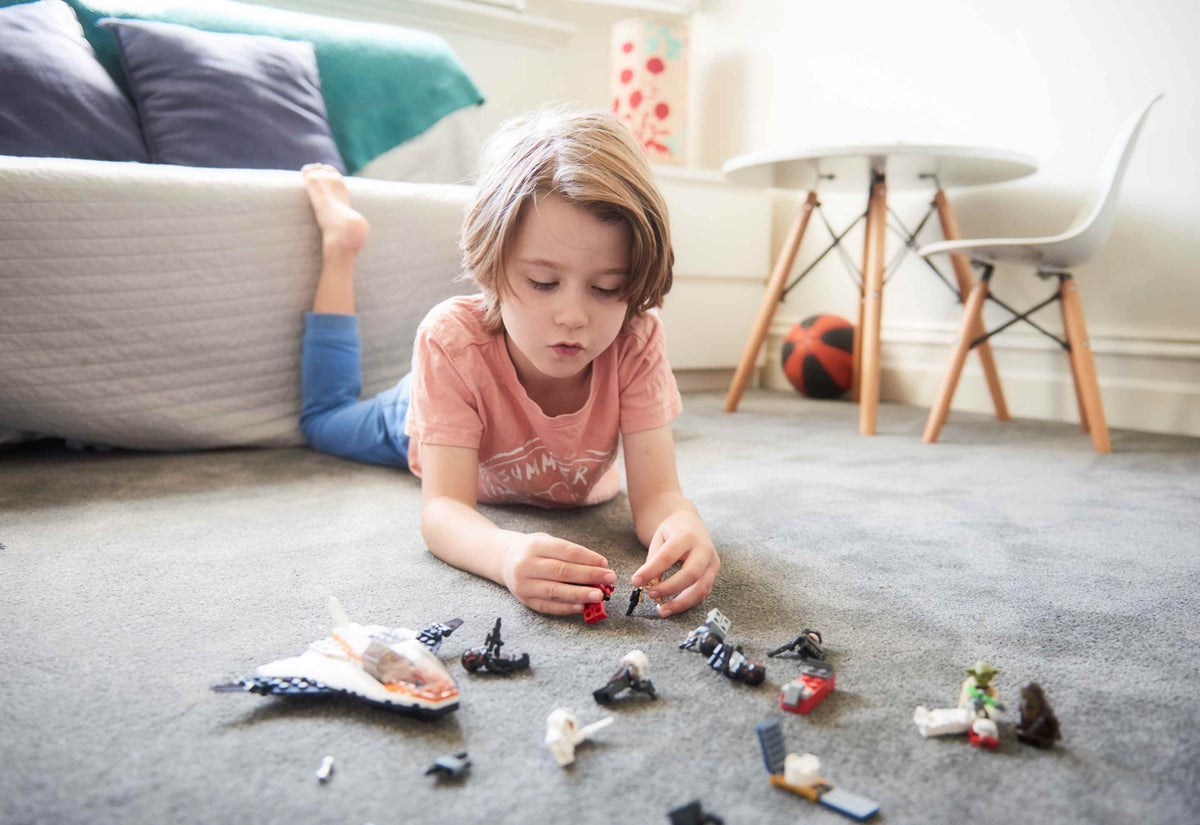
Australia
Indigo plays with his toys at home. For many parents, the challenges of continuing to telework while occupying their children who are at home are ever-present.
Photographer and mother Christina Simons feels she is one of the lucky parents. “Indigo can spend hours playing with his Lego and loves to role-play with Star Wars Lego figures,” Christina says. “This buys his parents some uninterrupted time to get work done!”
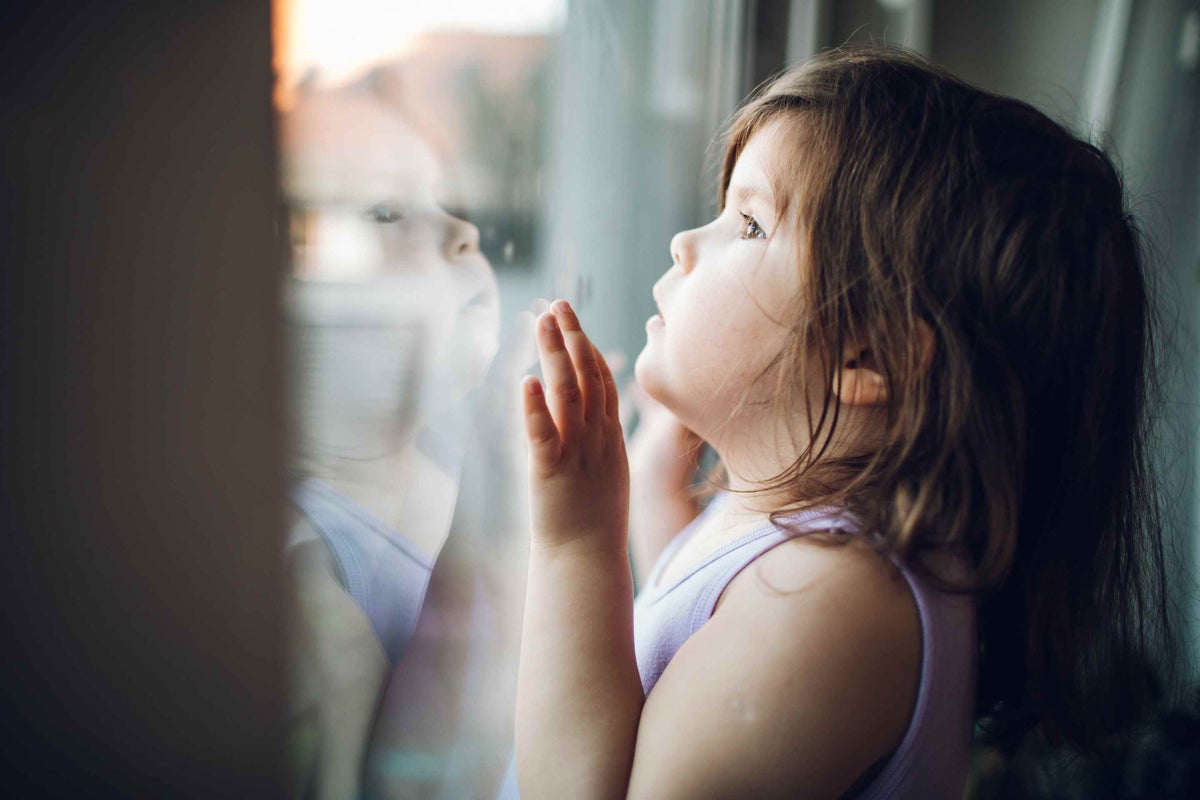
Bosina and Herzegovina
Nera looks through the window and once again asks why she can’t go out. Her photographer father, Haris Calkic, has been a single parent since Nera’s mother passed away two years ago.
For millions of children across the world, life has changed dramatically in the past few weeks. Nera wants to run to the park, play hide and seek, pick flowers and dance on the grass.
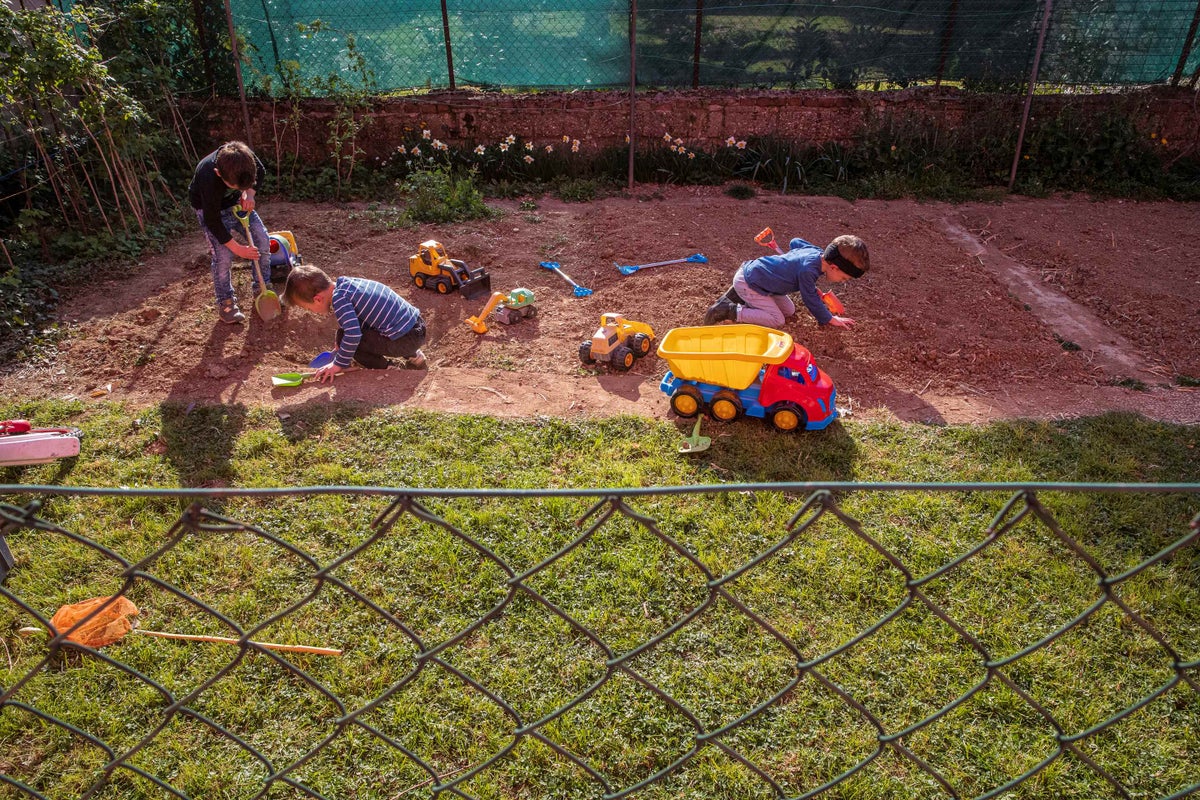
Italy
Mattia plays at home with his brothers Riccardo and Filippo. Photographer Giovanni Diffidenti lives next door to the boys, who are all living with a disability, in Italy during the COVID-19 global outbreak.
Speaking of the need to invent new things that can dispel boredom, “the danger is to see the light of curiosity, the desire to experiment and the magic of discovering new things vanish in the eyes of children,” Giovanni says. “Now it is up to parents amid a thousand difficulties to try to fill our children.”
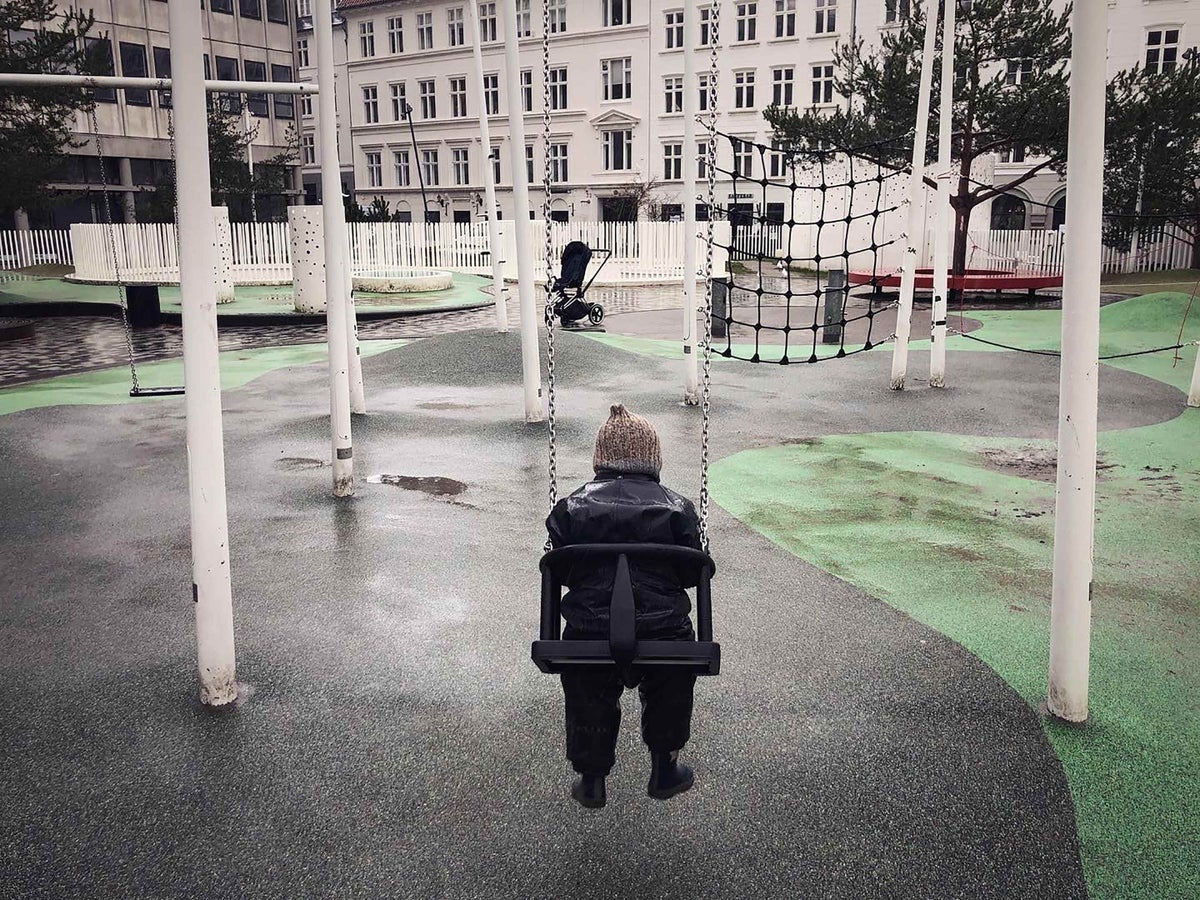
Denmark
Vester, at one of the many empty playgrounds in Denmark. Normally, all the playgrounds in the city would be filled at this time, but most people are staying at home.
For photographer and father Peter Hove Olesen, caring for a young son and working two full-time jobs is normally a bit of a puzzle. But when all universities, schools and kindergartens closed, “a few thousand pieces were added to that puzzle,” Peter explains.
His photo dairy grew as Vester’s world changed. “Maybe he won’t remember a thing from all this. He is mostly concerned about what we should play next and if the Easter bunny left any candy.” But lately, Peter has been explaining why they can’t see Vester’s friends and that he can’t just play with the other children at the playground. “I know, Dad,” Vester says. “Because then we might get sick.”
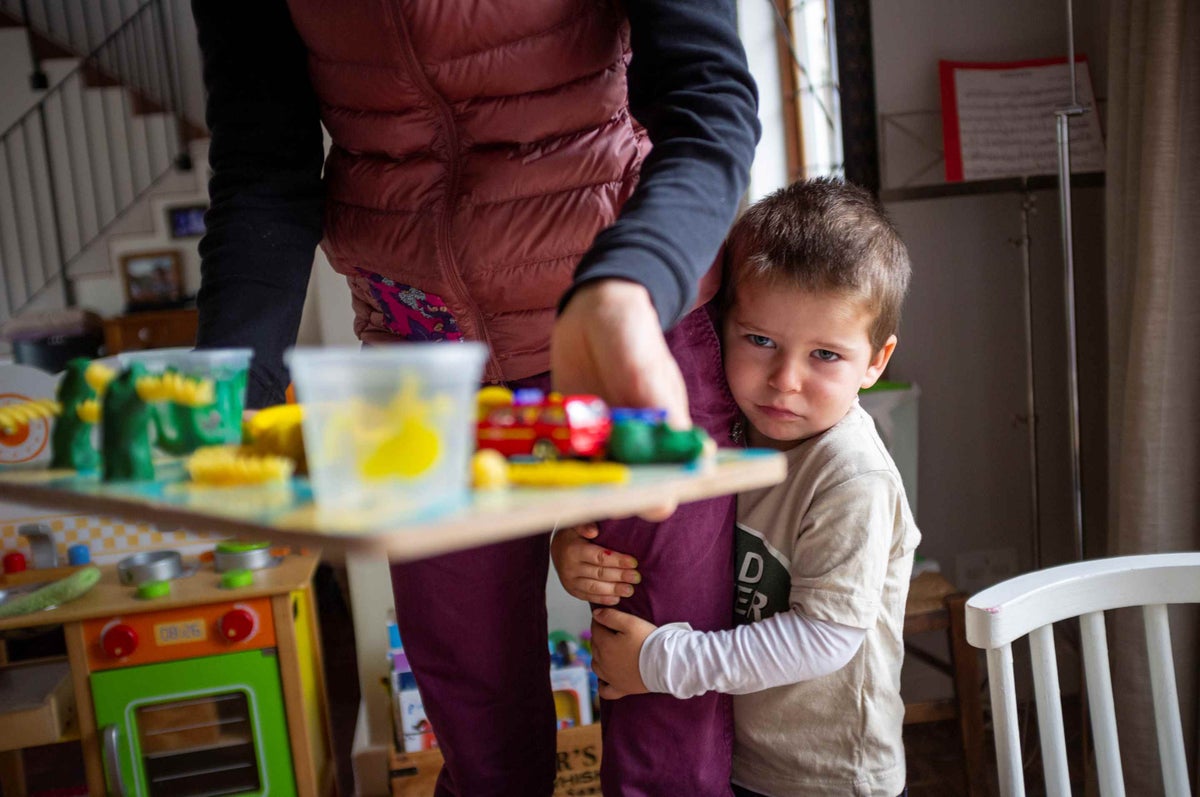
South Africa
Paul shows his displeasure at having to do yet another task in his homeschooling. Photographer Karel Prinsloo reflects that Paul is coping well with the lockdown, as he does not seem to miss school that much.
He keeps his son busy with schooling at home and, of course, Paul has lots of playtime. “We try to make sure both our kids can talk to a friend every day on WhatsApp,” Karel says.
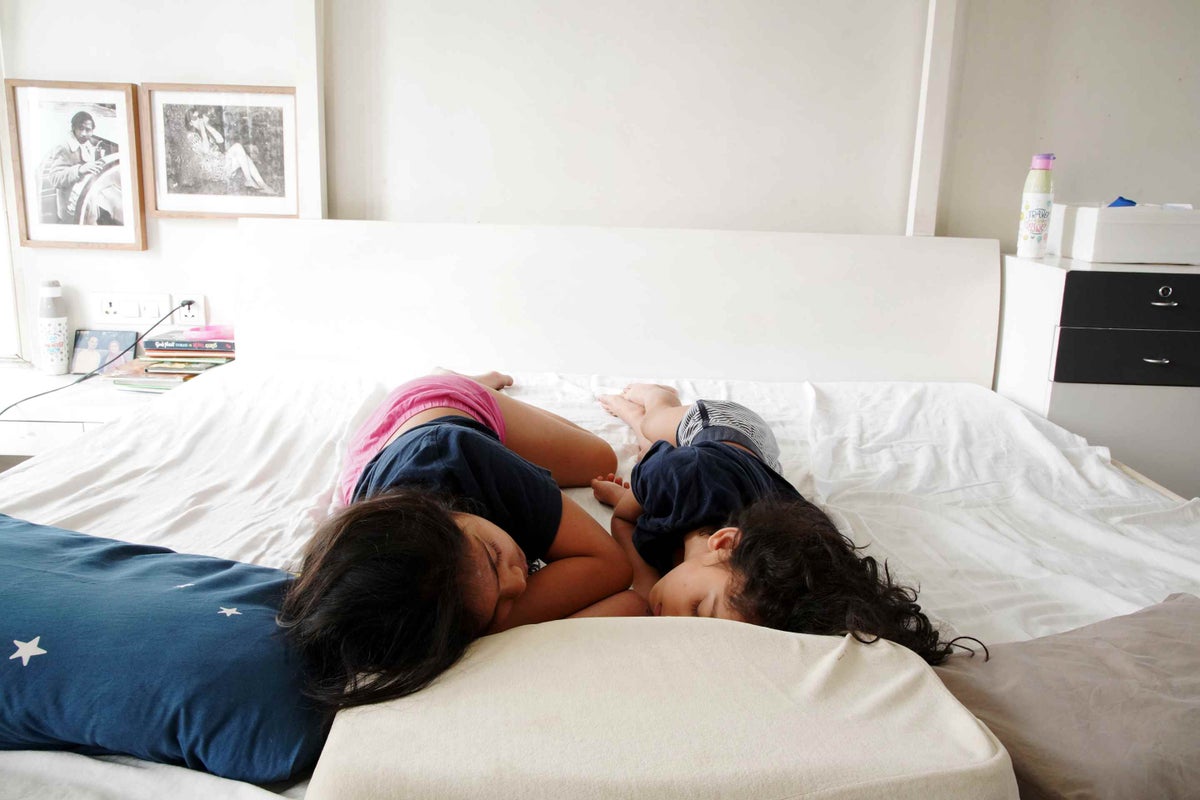
India
Azah and Zaara choose to sleep in their parents’ bedroom, rather than in their own rooms. Photographer and mother Anita Khemka was the only one supporting her own mother as she underwent emergency surgery on the day the lockdown was imposed. After surgery, as a precautionary measure, they both stayed in a self-imposed quarantine for 14 days.
“Having been away from the girls and my husband and dealing with the stress of my mum’s surgery and her recovery, more than the girls needing me, it was me who needed to sleep with them,” Anita notes. “Being back in the safe environs of the home, it is me who seeks solace and comfort in sleeping between them.”
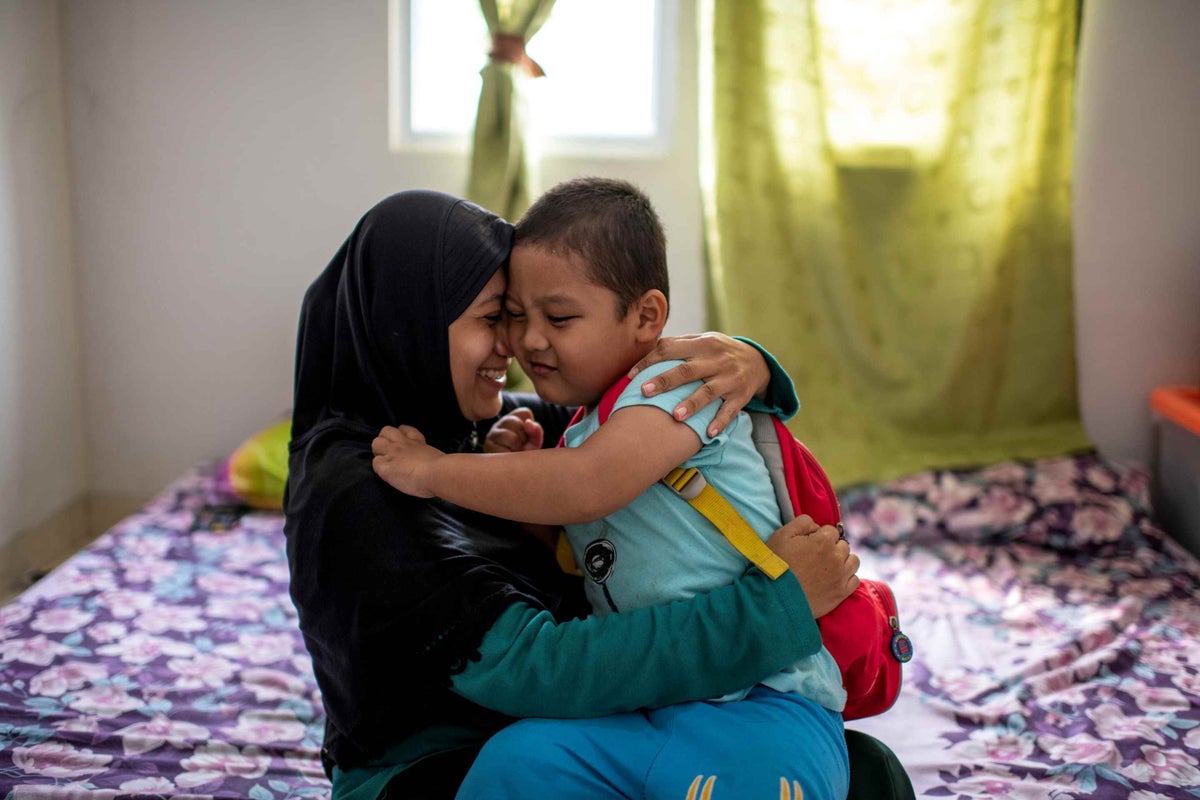
Indonesia
Fauziah, 32 (left), embraces her son Etno at home and manages to persuade Etno that he cannot go to school. Before the outbreak, the lives of photographer Arimacs Wilander’s family were as usual. Both Arimacs and Fauziah worked from Monday to Friday, their son went to school, and weekends were spent in the park or at tourist attractions.
After the first COVID-19 case was announced, the government increasingly urged people to not leave their homes and to work from home. “My son looks very bored and desperate,” Arimacs says. “Many times, he carried his backpack and asked my wife to take him to school.” Sometimes Etno cries because he is not allowed to go to school, but “my wife is able to manage his emotions and says funny things while hugging my son.”
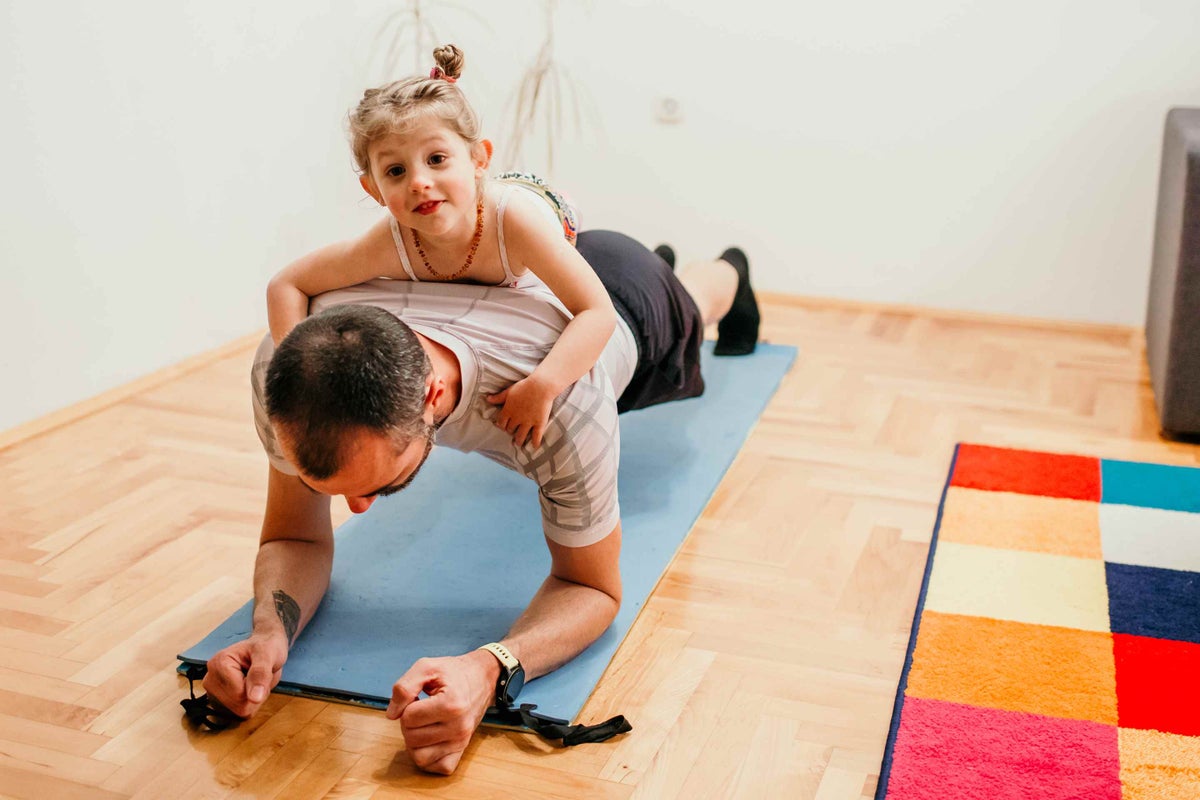
Bosnia and Herzegovina
Lana helps her daddy Igor while he does a plank exercise. Photographer Igor Isanović, athlete and sports enthusiast, believes that being physically active is very important, especially when in self-isolation.
Lana’s family is staying home to prevent the spread of the coronavirus and finds different ways to create unforgettable memories, such as this one, during these difficult times.
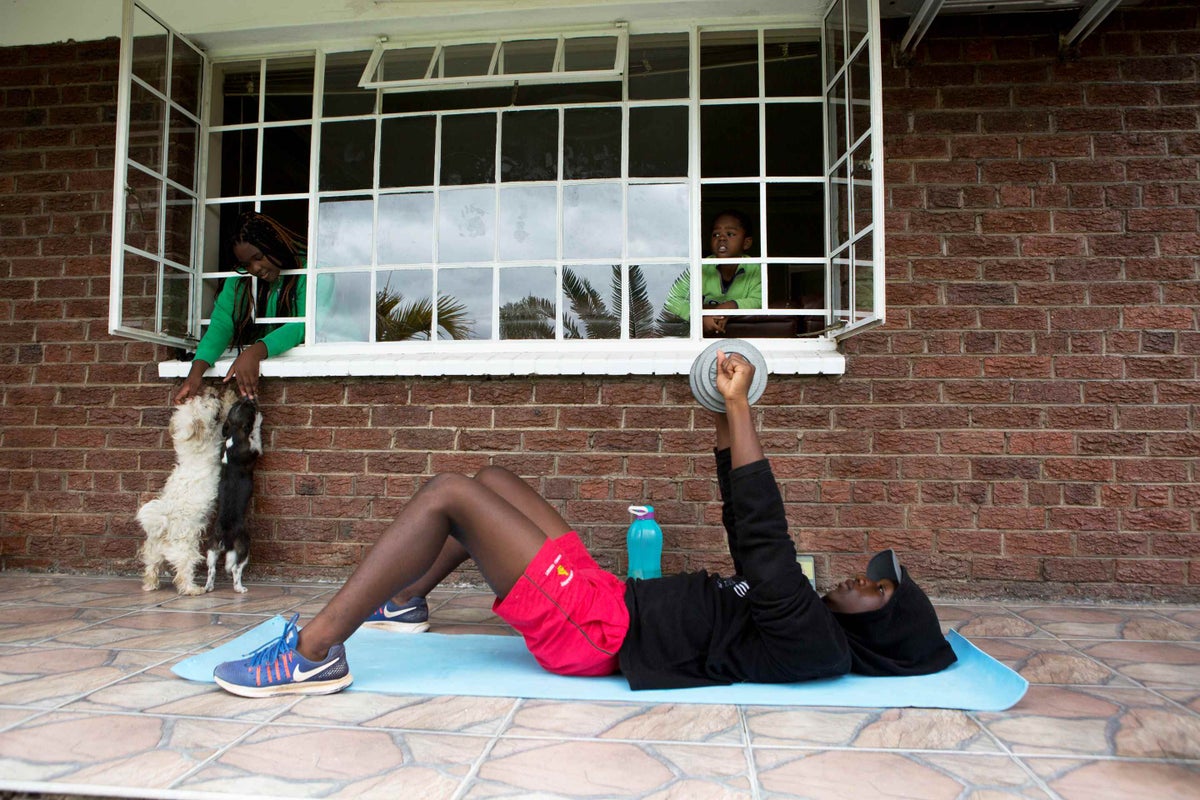
Zimbabwe
Tapfuma exercises while his siblings Timikha (left) plays with the dogs and Terrell (right) looks out the window of their family home. Photographer Tsvangirayi Mukwazhi reflects that “the COVID-19 pandemic has made us endure many days indoors and has helped us to bond and understand our children better. For us as a family, the lockdown has been a great opportunity to reflect on so many things, and when this is all over, our lives will never be the same again.”
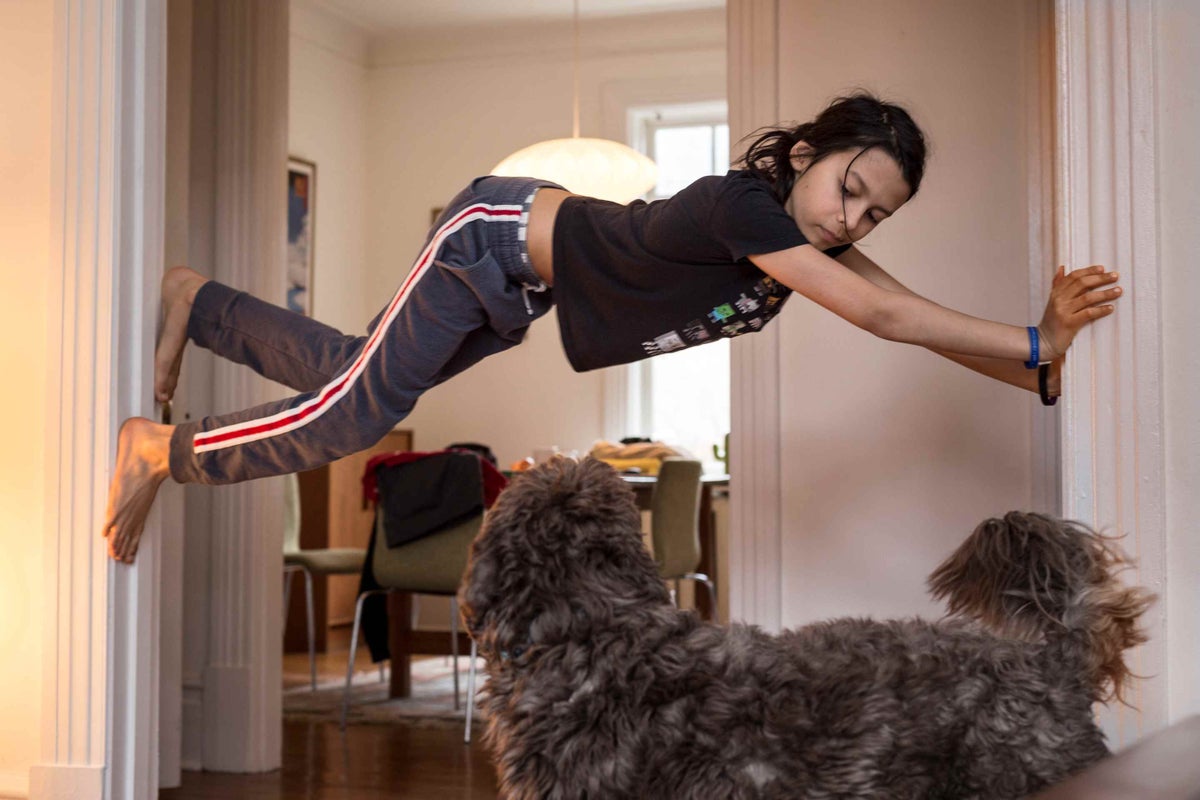
Canada
Sascha practices his parkour skills as he climbs the walls in their home while Kobi, the family dog, looks on. The family lives in a residential area, but all the park equipment has been cordoned off and some of the parks are completely closed. Sacha cannot play with anyone outside the family, so there is less incentive to exercise.
Photographer and father Roger LeMoyne says, “Getting the kids off computer screens and out doing the activities that are still possible has been the biggest challenge so far during the lockdown. It is difficult not to have the situation create a sense of doom that then undermines the kids’ motivations.”
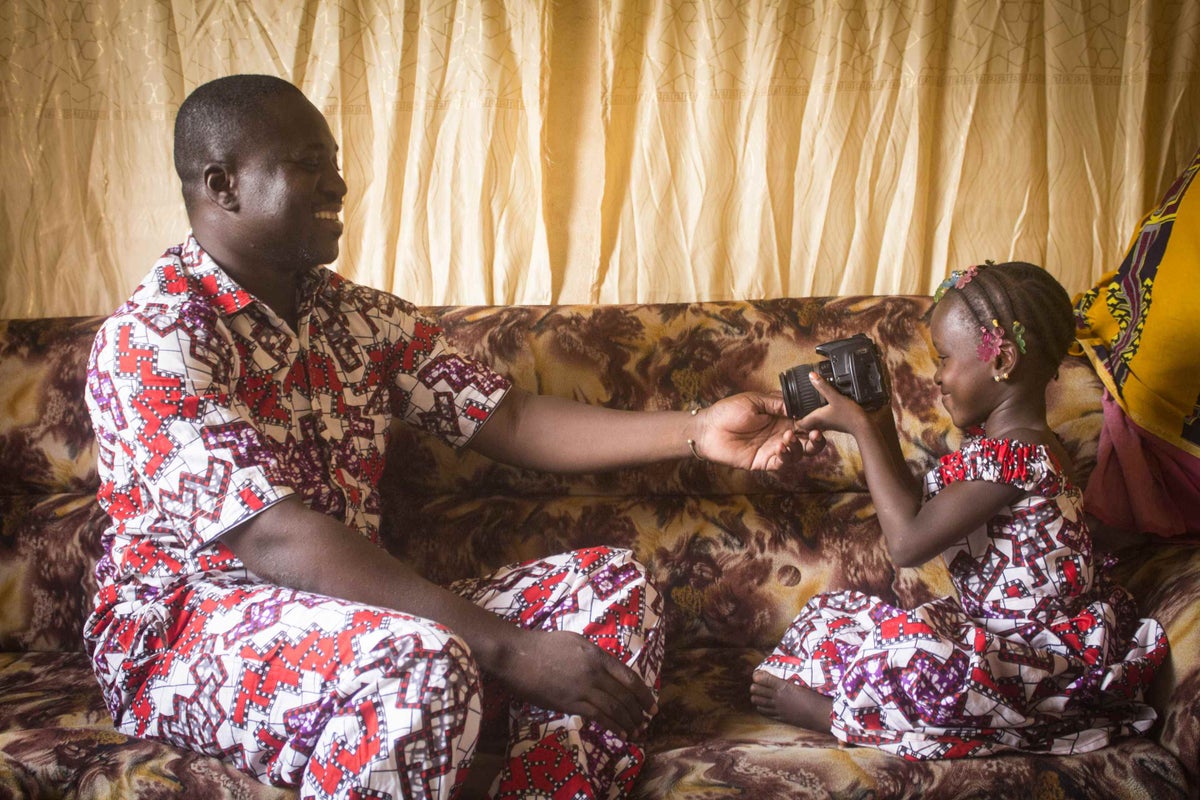
Mali
(Right) Mady takes photographs of her photographer father, Seyba Keita, at home. “Sharing some tips of my lovely work with my daughter is one my best moment in the day,” says Seyba. “She loves handling the camera and taking photos of her family.” In its COVID-19 response plan, UNICEF Mali aims to reach up to 4.5 million people – including almost 2.5 million children – to protect them against the virus.
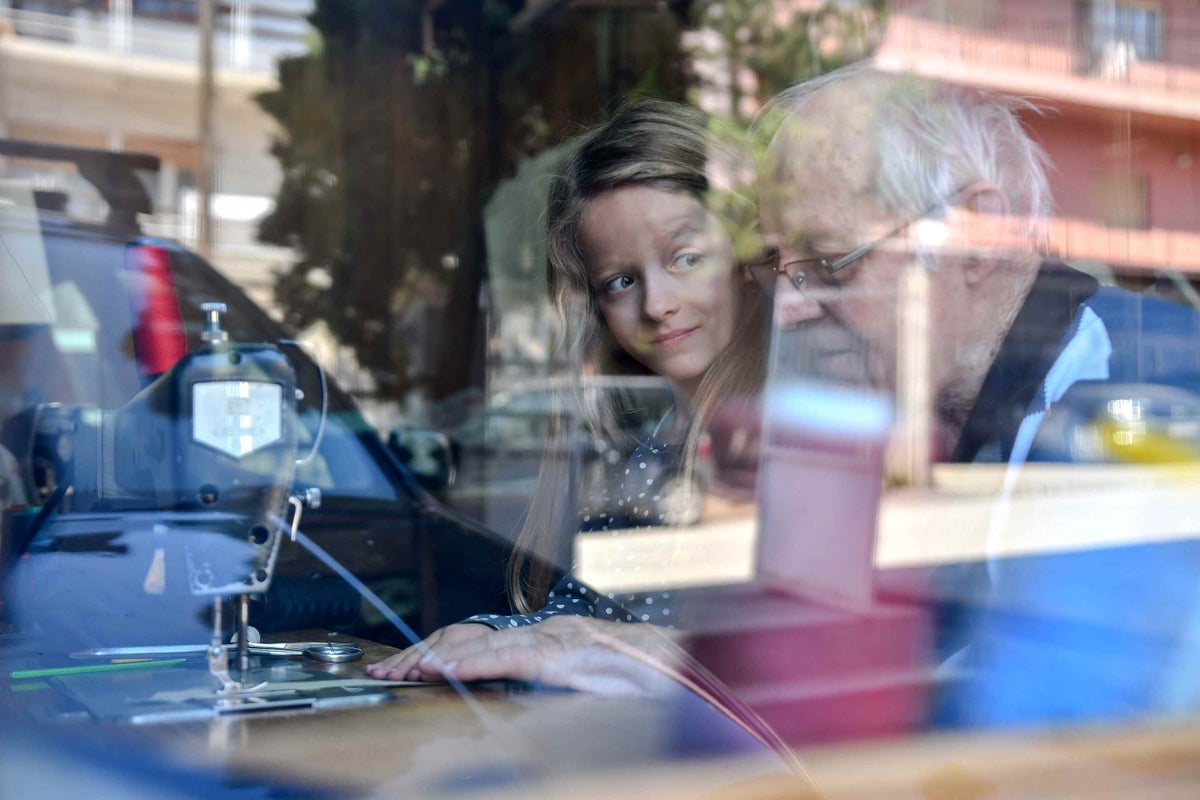
North Macedonia
Kaja learns how to sew dresses for her dolls with her great-grandfather, Trache, in his tailor’s workshop in their family home. Her father and photographer, Tomislav Georgiev, and his immediate family live in a multi-generational household together with Kaja’s mother’s parents, grandparents and brother’s family.
“The curfews introduced to reduce the spread of COVID-19 have been all about spending quality family time. I have realized that no matter how much time we think we have, at the end of the day, we simply don’t spend enough quality time with our families,” says Tomislav. “The silent understanding of the children is simply astonishing. Children’s lives have completely changed, yet they seem to grasp the importance of their contribution better than most adults.”
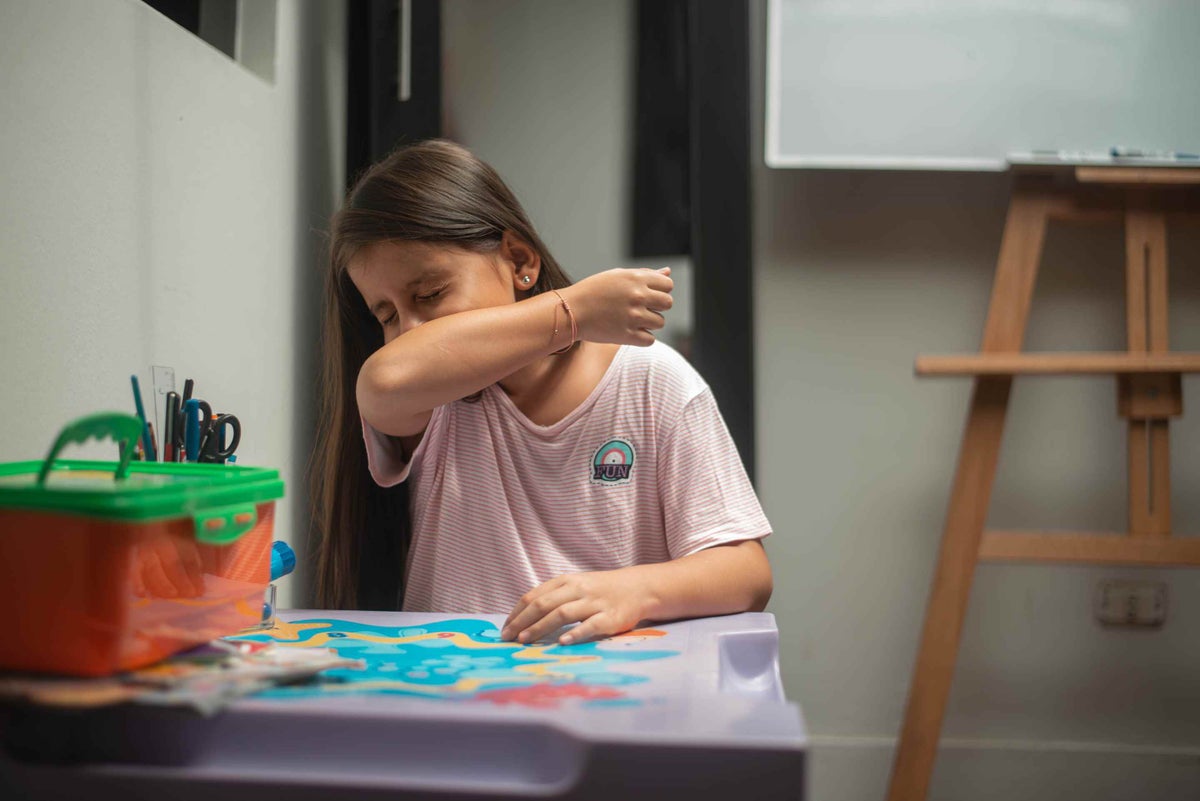
Peru
Working on an art project at home, Jimena covers her sneeze with her arm. “We wash our hands all the time, we don’t want to get coronavirus,” Jimena says.
The whole family follows prevention measures, solitary confinement rules and government indications. Close family friend and photographer Diana Mandros lives in the same building.
“This situation is something never experienced before,” says Diana. “It’s not just about being at home and rationing meals, it’s about fear about what’s present on the streets but we can’t see. It’s a time of evolution of what happens to us and what happens to the world. Fear will be part of our routine, but so, too, must hope.”
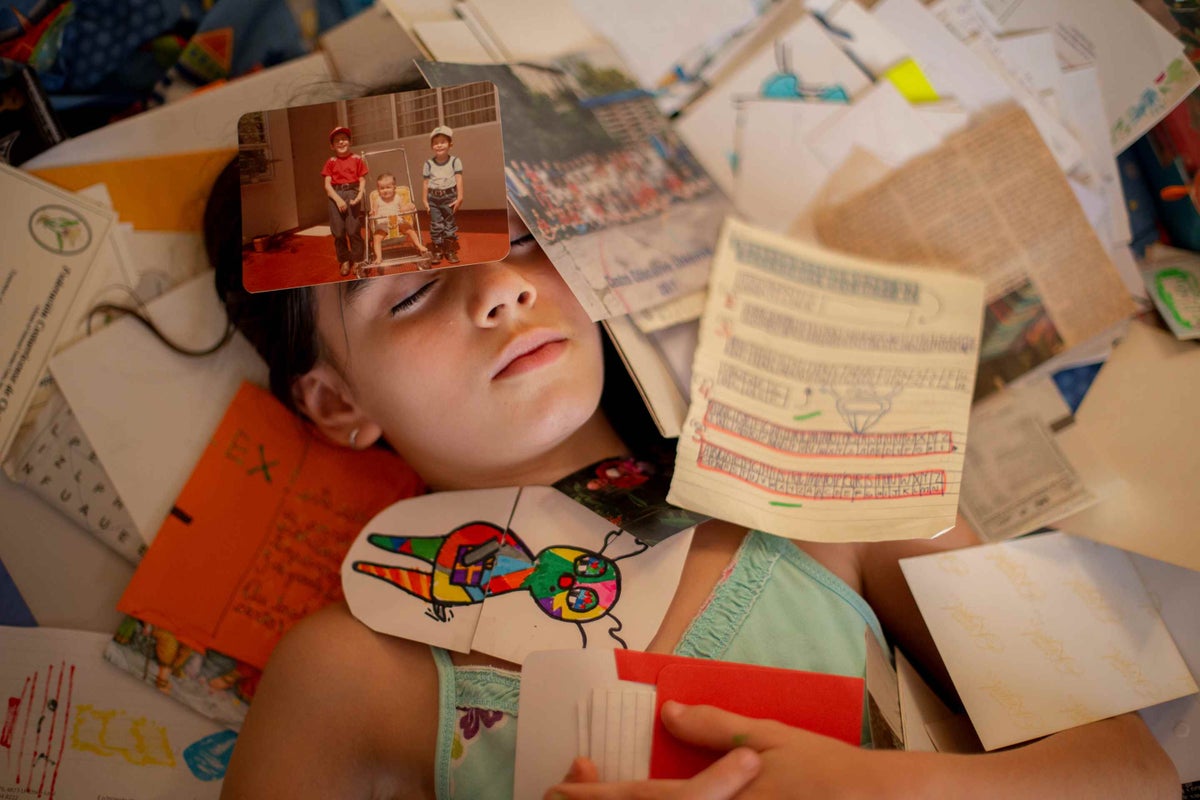
Costa Rica
Lara lies on the floor at home, covered by photos, cut-outs, drawings and other papers. She rummaged through her mother’s ‘treasure box‘, which has letters and photos and other memories. Lara asked her photographer mother, Priscilla Mora Flores, for a photo of herself covered by Priscilla’s most valued moments in life.
In Lara’s home, the family was quarantined early, as Priscilla was hospitalized with AH1N1 influenza. “I thought that because of my work, in which I usually have contact with foreign people, I could have had COVID-19. The diagnosis was swine flu, the last pandemic registered before this current one,” says Priscilla.
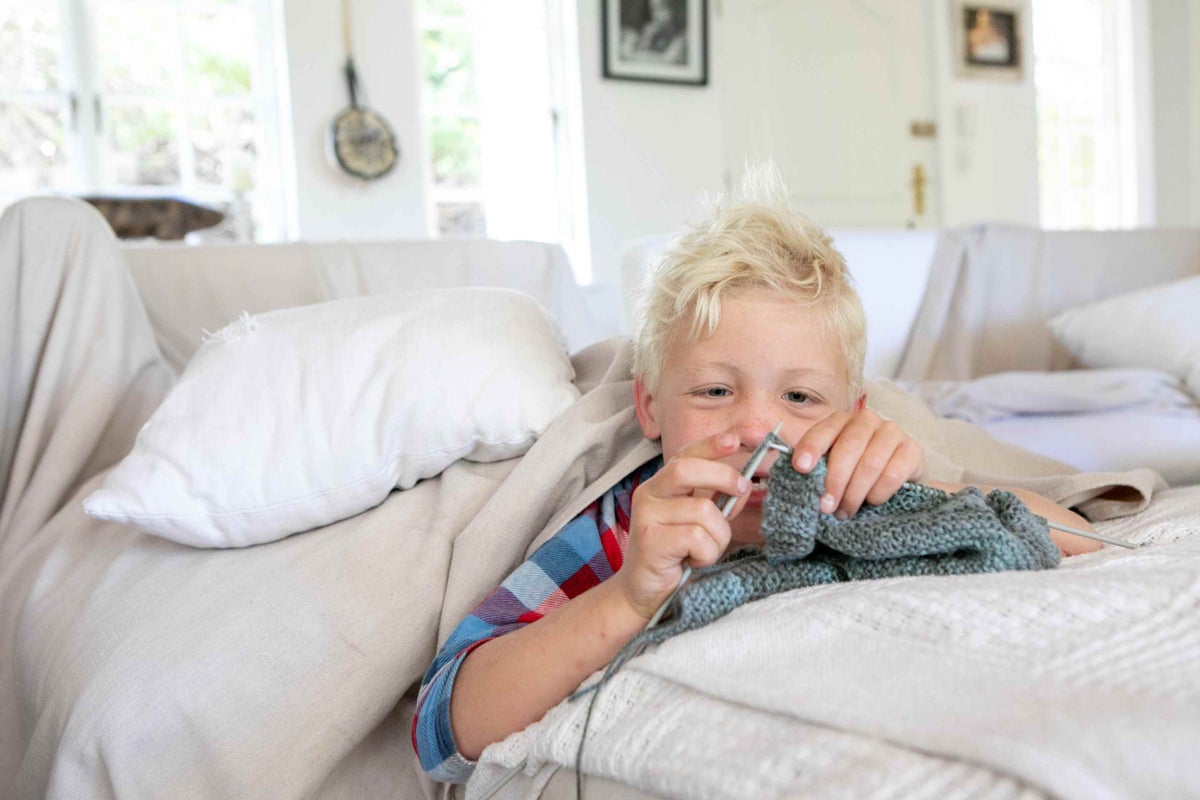
South Africa
Ethan has found a way to pass time in isolation. “Ethan loves to knit, and it has kept him busy for hours during lockdown,” photographer and mother Karin Schermbrucker reflects. “Still in his pyjamas, nestled between the cushions and covers of the couch, he creates a safe and happy place amid the current concerns of the outside world.”
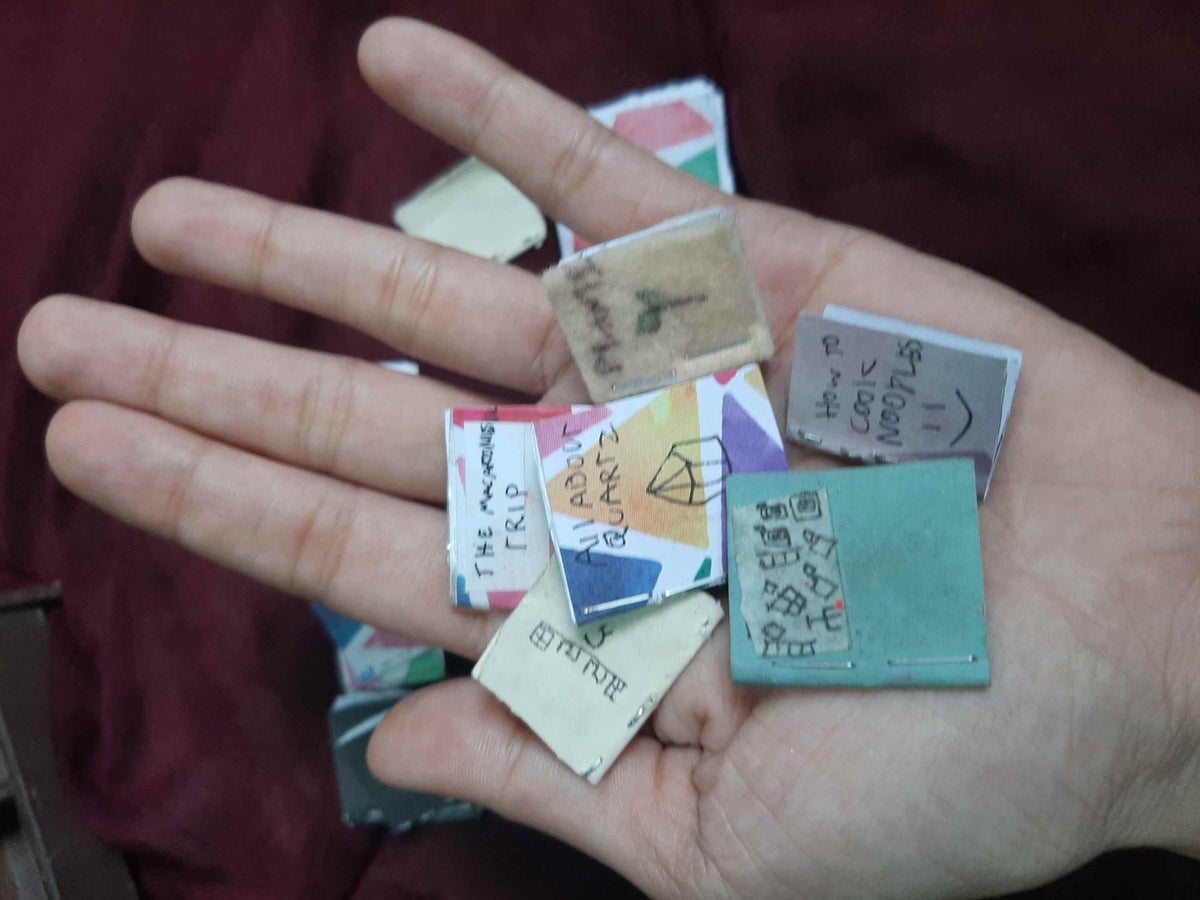
Philippines
Marion shows off the miniature books she has made from art materials. “It has been three weeks since the lockdown, and she keeps herself busy with her favourite hobby – creating miniatures,” her photographer and mother Wena Sanchez says. “As an only child, she finds solace in creating her ‘little world’. Hopefully, the lockdown will be lifted before her art materials run out!”
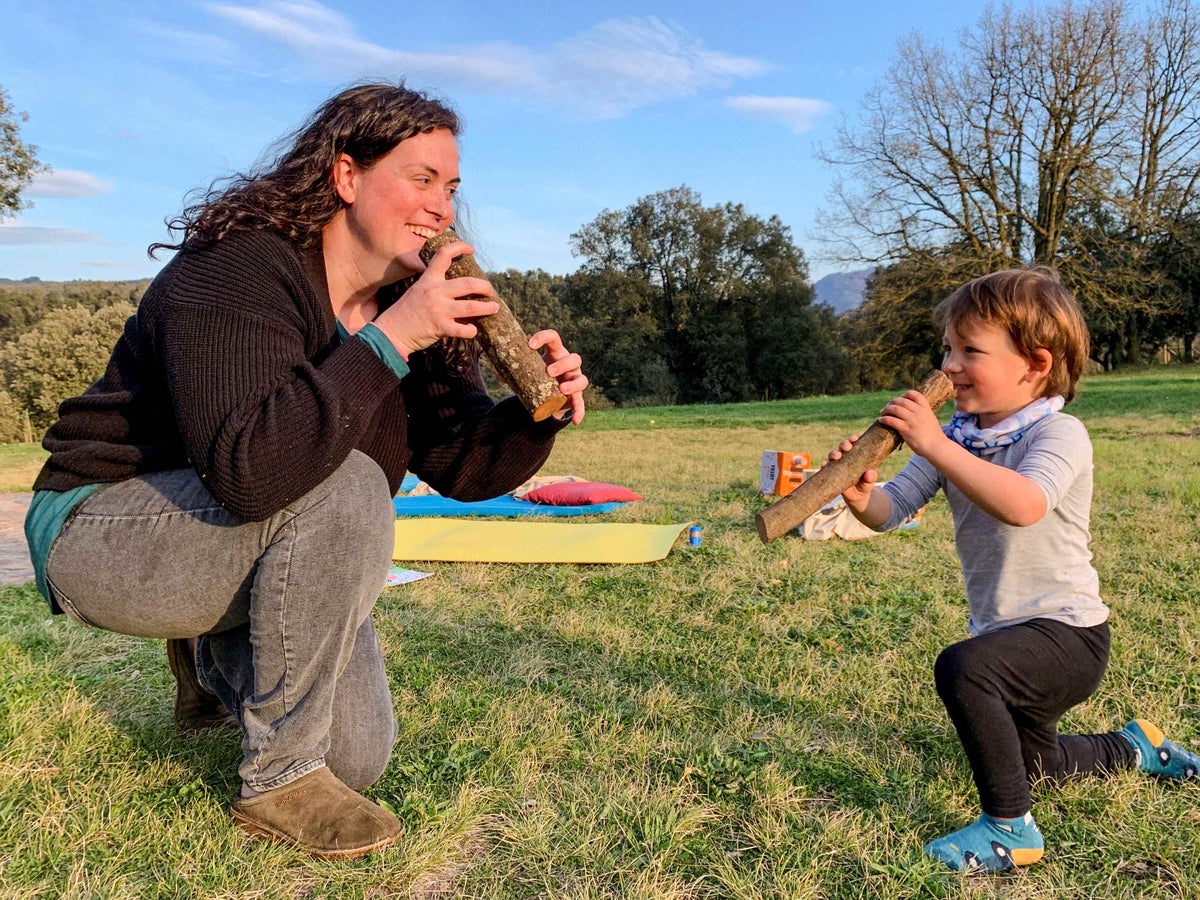
Spain
Max and his auntie Marta sing and play their make-believe trumpets fashioned from wooden logs. “We are always singing with Max,” Marta says. “He loves song and singing along, so we have made him also a cardboard guitar to play with.”
Photographer Marta Sala Font was visiting her family when Spain called the country’s lockdown, so she has been spending time with her nephews while in isolation. Max is self-isolating with his parents, his baby brother, his grandparents as well as his aunt.
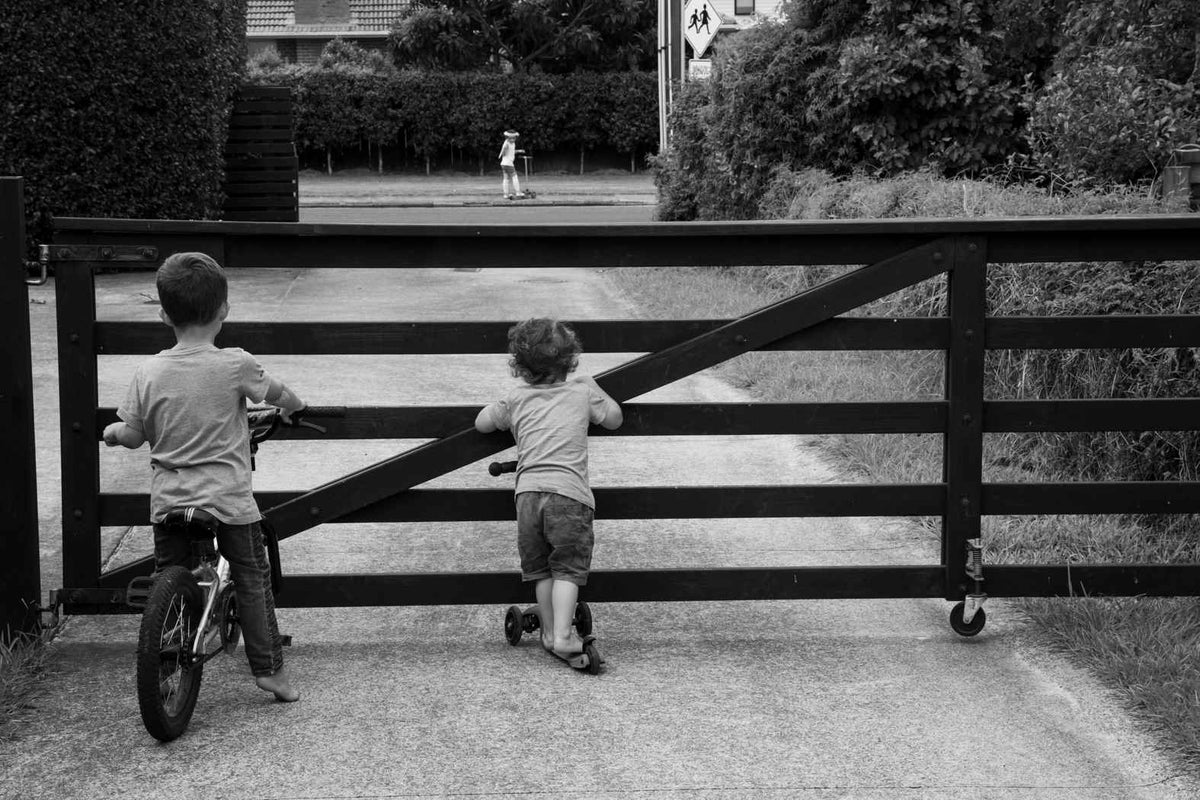
New Zealand
(Left to right) Awa and Winiata call out to their friend, Te Ao Kapurangi, who lives in a house on the same street. During the lockdown, the family can only go out for necessities like groceries and medicines.
“People must spend the most part of their day in their homes and practice physical distancing from any other person that is outside their ‘household bubble’,” says photographer and father Cornell Tukiri. “This time is particularly hard on children, as it is difficult for us parents to explain that they cannot go near anyone, even their friends and family.”
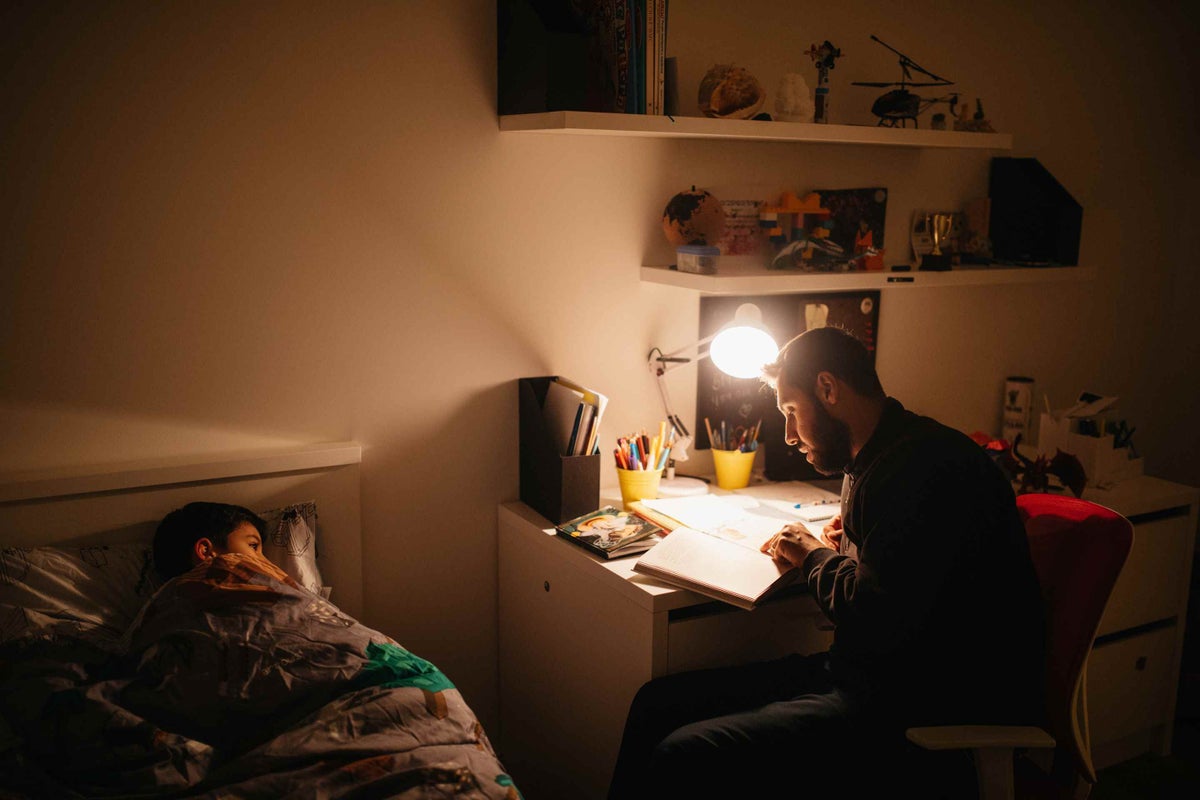
Armenia
Daniel listens to his father, Arthur Gevorgyan, reading him a bedtime story. With the lockdown and restricted working conditions, Arthur now spends much more time with his son than before. “With my unregulated work schedule as a photographer, I would hardly find time to regularly spend with Danny and do the things that we both truly enjoy,” admits Arthur.
Reading is now a firm part of their bedtime routine. Every night, Arthur reads a new book to Daniel and, after they are done, Danny choses a new one for the next evening.
“You cannot trick him – he clearly remembers what we read days ago and always makes sure to choose a new one that we haven’t read in a long time.”
UNICEF remains steadfast in its mission to provide essential support, protection and information as well as hope of a brighter day for every child. UNICEF stands united with one clear promise to the world: we will get through this together, for every child.
Related articles
Stay up-to-date on UNICEF's work in Australia and around the world



